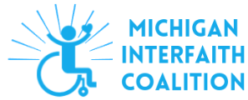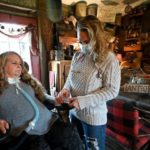New Study: Auto Insurance Law Has Caused Deaths, Hospitalizations, Loss of Service for Catastrophic Crash Survivors
Constand: Michigan is in the midst of a humanitarian crisis
BRIGHTON, Mich.—(September 27, 2022)—A new study released today by MPHI to document the impact on auto crash survivors and their families of the fee structure reimbursement changes for family members and professionals providing services in the 2019 Michigan no-fault auto insurance reform law that took effect on July 1, 2021 further reaffirms what the legislature has been told for over a year— people are suffering, essential care is being denied, and the only solution is legislative action.
The study was commissioned by the Brain Injury Association of Michigan (BIAMI), a social impact nonprofit dedicated to improving the lives of those affected by brain injury. BIAMI President and CEO Tom Constand called on the legislature to act swiftly to stop the suffering being endured by Michigan’s most vulnerable residents.
“MPHI has released a new perspective on the lives being impacted by the draconian fee schedule and the invasive family provided attendant care hourly limit. MPHI has already published reports showing the impact of reimbursement cuts to providers—resulting in nearly 7,000 patient discharges and over 4,000 healthcare jobs lost. This latest report confirms the devastating impact this law has had on catastrophically injured citizens. The results further cement the fact that Michigan is in the midst of a humanitarian crisis,” said Constand. “Our lawmakers need to take quick corrective action to end this unconscionable suffering that they created.”
The report by MPHI, which documents the impact of the law on 498 unique crash survivors indicates that there is a “universal reduction from before July 1, 2021 to Spring 2022 across all categories of health needs addressed, level of care provided, rehab services received, and other services/products/accommodations received.”
Constand stated “We know this is just a portion of the thousands of lives being impacted, but the nearly 500 people who are represented in this survey shines further light on the interruption to their rehabilitation, the loss of life-sustaining prescribed care, and the personal anguish being experienced by crash survivors and their families.”
The study found that since July 1, 2021:
- 78% of respondents reported a loss of services
- Over 1/3rd of respondents reported an impact in their rehabilitation progress, increased medical needs, and/or increased behavioral needs
- nearly 10% of respondents have been hospitalized, directly related to loss of services brought on by no fault reform
- 20% of respondents have applied for Medicaid assistance
- 43% fewer patients are able to maintain full-time employment, as they have no one to get them up, groomed and transported to work, or remain there to toilet them
- 6 deaths reported
“The data from these 498 car crash survivors, most (65%) of whom were receiving care for injuries sustained over 10 years ago, clearly indicates adverse impacts from the fee schedule and changes in the hours compensated to families for the care they provide,” said Dr. Clare Tanner, who headed the study and serves as the director of the Center for Data Management and Translational Research at MPHI.
In addition to the data supporting the need for a legislative solution, Constand remarked “the heartbreaking anecdotal evidence combined with the hundreds of personal stories documented directly and on social media through the voices of those calling out for help should be more than enough to move our lawmakers.”
The personal anecdotes paint a picture of the devastation and despair survivors and families have been put in since July 2021. Said one parent: “It has been an absolute disaster. Our daughter has regressed due to reductions in therapy, finding nurses and aides to assist in care is almost impossible because the agencies cannot pay them a competitive wage. Our aide agency is the last standing in our areas and if they go bankrupt, which they are close to doing, we have no other options as our daughter needs 24- hour care.”
Said one crash survivor: “My husband is now providing many more hours of my care than he was before the law changed, but is only being paid for 56 hours, at a rate that is not adequate to cover our expenses. Yet he is not able to work at a regular job to make up for the lost income because I don’t have enough reliable agency caregivers to provide me help while he would be working. As a result, we have seen our savings dwindle drastically, and we worry about paying our mortgage and other bills.”
Said a legal representative of a crash survivor: “He died of a heart attack on October 25, 2021. After his death, his family doctor reported that he had given (him) a physical exam about a month earlier. The doctor said that looking back on his records, he could find no reason to suspect any heart difficulties, and he just shook his head when asked what he thought had happened. His parents and caretaker brother believe the stress of not being able to pay for caretakers was the underlying cause of his death. After the new rules were enforced, our normally cheerful child went into a ‘funk,’ with comments like: ‘I’m just a burden;’ ‘I’m ruining everybody’s life now;’ ‘You’d be better off if I was dead.’ Here’s the comment that brings tears to my eyes as I type it for this report: ‘What can I do now, Dad?’”
The survey was conducted in response to Senate Majority Leader Mike Shirkey and other Michigan lawmakers calling for data showing how the new law was impacting survivors of catastrophic injuries and the providers who care for them.
About the Brain Injury Association of Michigan
The Brain Injury Association of Michigan (BIAMI) is a nonprofit 501(c)(3) social impact organization dedicated to improving the lives of those affected by brain injury while reducing the incidence and impact of brain injury through advocacy, education, and support. Founded in 1981, the Brighton-based BIAMI serves Michigan’s brain injury community through comprehensive educational and support programming and is a primary conduit between survivors seeking assistance and the extensive network of accredited treatment facilities, programs and professionals in Michigan. The BIAMI also supports 15 statewide chapters and support groups that meet monthly.




